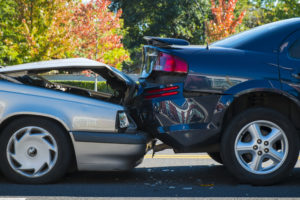 We last discussed this issue in October 2016. Ride-sharing is a relatively new development that pairs private vehicle owners with people wanting to go somewhere. Once the driver logs into and activates the driver app on his mobile device, the platform finds a nearby rider and informs the driver of the rider’s location. The driver has the option to accept the ride. Once accepted, directions to pick up the rider are sent through the app to the driver. Once the driver picks up the rider, the app notifies the driver of the destination and guides him there via a map in the ride-sharing company’s app or via a link to a mapping app, such as Google Maps or Waze.
We last discussed this issue in October 2016. Ride-sharing is a relatively new development that pairs private vehicle owners with people wanting to go somewhere. Once the driver logs into and activates the driver app on his mobile device, the platform finds a nearby rider and informs the driver of the rider’s location. The driver has the option to accept the ride. Once accepted, directions to pick up the rider are sent through the app to the driver. Once the driver picks up the rider, the app notifies the driver of the destination and guides him there via a map in the ride-sharing company’s app or via a link to a mapping app, such as Google Maps or Waze.
Uber and Lyft are the best known of these companies and are also known as transportation network companies (TNC). Drivers are considered independent contractors rather than employees, and they must maintain state minimums for insurance on their personal vehicles. This personal car insurance (PCI) covers the driver when they are driving their personal vehicles for personal use. When the driver turns on the TNC’s app and activates driver mode, they are automatically asking for a rider to be assigned to them and therefore become active contractors with the TNC.
If You Are in a Collision With a Ride-Sharing Driver and They Are at Fault
While waiting for a rider to be assigned, TNC drivers are still, under current practices, covered only by their PCI. If you have a collision caused by a TNC driver at this stage and you are injured, you may sue the TNC driver personally, and his PCI carrier may or may not accept the claim. Once the app is activated in driver mode, whether the driver has received a ride request from the TNC or not, the PCI carrier may rule that the driver is engaged in a commercial activity with his vehicle. Since his application for insurance may or may not have disclosed driving for a TNC as one of the uses of the vehicle, the insurance company may refuse the claim and/or cancel the driver’s PCI policy. In any case, this is not much different from any other personal accident claim. If the driver has assets, they may be sued personally to recover medical expenses for treatment of injuries. If the driver has no assets, you may then rely on any uninsured/underinsured (UM/UIM) coverage or MedPay coverage that you carry on your own policy.
If, on the other hand, the driver has received a ride request and is en route to pick up the rider, or if the driver has picked up the rider and is taking them to their destination, in addition to the driver’s PCI, the TNCs carry a $1 million policy, which can cover anything above and beyond the PCI limits of liability up to the $1 million limit. If the PCI carrier refuses coverage due to commercial use of the vehicle, then the $1 million TNC policy may cover the entire claim.
If You Are Riding in a Ride-Sharing Vehicle and Are Injured
If you are a rider in a TNC driver’s vehicle and are injured, in addition to any coverage due under the driver’s PCI, you may also be covered by the TNC’s $1 million policy, whether the TNC driver is at fault or not. If the at-fault driver is uninsured or has only state-mandated limits of liability, the TNC’s $1 million UM/UIM coverage may come into play.
While a $1 million policy sounds impressive, keep in mind that in multi-vehicle accidents, that coverage will be split between all parties injured in the accident and limits of liability may be reached pre-maturely.
Let The Richard Harris Personal Injury Law Firm Help With Your Ride-Sharing Accident Claim
The legal landscape becomes more complex when involved in an accident with a ride-sharing driver. You should consult an attorney who has the experience and proven results in handling accident claims to ensure that you receive all benefits you are entitled to. The Richard Harris Personal Injury Law Firm’s attorneys have the experience to obtain all benefits you should receive under the law. If you have been in an accident with a ride-share driver and were injured due to no fault of your own, call us today at (702) 444-4444 to discuss your potential case.
Learn More:
http://time.com/money/4851877/my-uber-got-into-a-wreck-can-i-sue/
https://www.hg.org/legal-articles/what-you-need-to-know-about-uber-s-$1-million-insurance-plan-37714
https://www.quora.com/What-should-one-do-if-their-Uber-driver-gets-in-a-car-accident





























